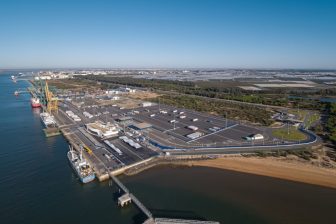Brexit impacts UK intermodal activity in 2019
Domestic intermodal activity in the UK is expected to witness a decline this year due to uncertainty related to the Brexit. “While 2018 saw a notable growth in domestic bulk and semi-bulk rail freight, sentiment for 2019 is much more subdued, indicating we are entering more challenging times”, said Elizabeth de Jong, Director of UK Policy at FTA, which represents the UK logistics sector.
The FTA made these remarks after launching its 2019 Logistics Report in association with Santander Corporate and Commercial Banking. It warns of challenging times ahead for the rail freight sector. “The uncertainty surrounding Brexit has already led to hesitancy among clients with manufacturing growth reaching a three-month low in January and new business projects falling to an eight month low”, de Jong added.
Poll
The 2019 Logistics Report polled the opinions of more than 500 freight and logistics businesses operating in the UK and internationally, to provide industry insight into the latest political and economic developments. With indications of a reduction in global demand in 2019, the survey respondents anticipate a substantial decrease in domestic intermodal activity. On the international level, bulk and semi-bulk rail freight declined in 2018, with no change predicted next year.
John Simkins, Head of Transport and Logistics, Santander Corporate and Commercial, commented: “Uncertainty has been the inevitable reality for UK businesses over the last year, especially for those operating in transport and logistics. Last year was a bumper year for domestic bulk and semi-bulk rail freight but according to the report, the outlook for 2019 is not so optimistic.”
Investment in infrastructure
The report also found that the UK’s global competitiveness has dropped significantly and investment in the UK’s transport and logistics infrastructure is urgently required to boost its attractiveness to international investors. Furthermore, the survey indicated that the uncertainties surrounding Brexit are taking their toll on the wider logistics industry; 61 per cent of respondents say this uncertainty is a barrier to the growth of their businesses internationally.
“Efficient logistics is vital to keep Britain trading, directly having an impact on more than seven million people employed in the making, selling and moving of goods. With Brexit, new technology and other disruptive forces driving change in the way goods move across borders and through the supply chain, logistics has never been more important to the UK”, the FTA said.





